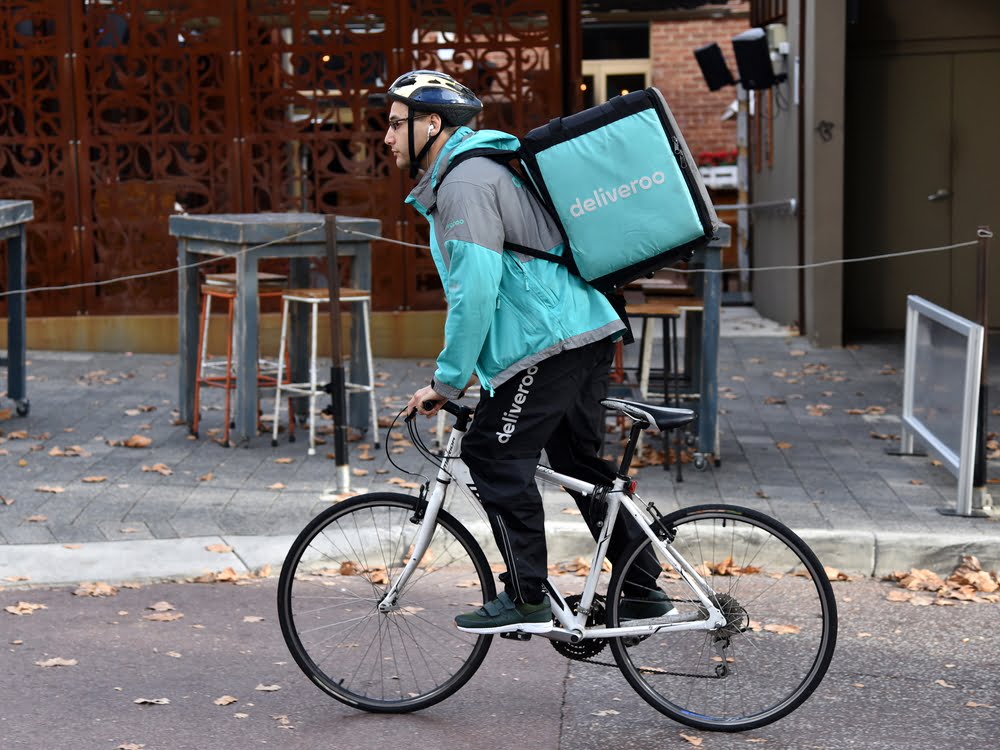Menulog’s announcement that it will move to an “employment model” within years and pay its workers the minimum wage and superannuation has been heralded as a “watershed moment” for the gig economy.
Menulog executives revealed at a senate inquiry hearing on Monday afternoon that the food delivery company would soon run a pilot program in the Sydney CBD where its delivery riders will be full employees.
It’s a significant shift away from the independent contractor model that is rife in the gig economy and used by the likes of Uber, UberEats and Deliveroo.

These large gig economy players have continually argued that their workers are independent contractors rather than employees, meaning they don’t have to provide them with benefits such as superannuation or sick leave, or provide the minimum wage.
Executives from these firms had earlier appeared at the inquiry, claiming any move to provide workers with the minimum wage or other benefits and to make them employers would jeopardise the “flexibility” that they apparently enjoy.
The move would make Menulog the first gig economy firm in Australia to actually employ its workers.
Menulog managing director Morten Belling told the inquiry that it would be a long journey to this “employment model”, but the company will be looking to “bridge the gap” in the meantime and provide benefits to its workers.
He said this move is a “moral obligation” rather than a legal one, and based heavily on improving the safety of delivery riders, placing further pressure on the large tech players in the space.
“We owe it to our couriers to help enhance their life standards and as such, we have begun looking at how we can improve the way we operate and, as part of this, how we can roll out an employee model in Australia,” Mr Belling said in his opening statement.
“We believe this plan will help us better do the right thing by our couriers and meet our moral obligations as an Australian-born business and one of Australia’s largest food delivery platforms.”
Mr Belling said the announcement was made earlier than expected due to the timing of the public hearing and that the overall process could take a few years.
The plan has been welcomed by the Transport Workers Union (TWU), which has been campaigning for better rights and benefits for those working in the gig economy for several years.
“This is a watershed moment for the gig economy in Australia. For the first time, a food delivery company has realised the importance of awarding minimum pay and rights to riders and will move towards this model,” TWU national secretary Michael Kaine said.
“We congratulate food delivery riders for raising their critical concerns about the deadly pressures of exploitative business models that has led to Menulog to focus on improving conditions.”
The TWU will be working with Menulog on the trial and on an analysis of contractors riders to improve pay and conditions, which the union said will “challenge the myth that flexibility and fairness are at odds”.
“Minimum pay and rights for riders will break apart the dependent, exploitative relationship that forces riders to work quickly and dangerously over long hours just to put food on the table,” Mr Kaine said.
“Finally, socially conscious consumers will be able to select a food delivery company that aligns with their values and the protections they know these essential workers deserve.”
This argument that providing employment benefits is at odds with worker flexibility was a common theme of the testimony of Uber and Deliveroo executives earlier at the hearing, and used as a reason to not provide workers with the minimum wage or other benefits.
Deliveroo representatives claimed that a minimum hourly rate for riders would be seen as a “maximum” rate by these workers.
But Menulog said there is a “major caveat” with this plan, saying that it will require a new worker classification to be created sitting between an independent contractor and a casual employee.
“Ultimately we want to employ couriers. However, the current regulatory framework presents a number of challenges with specific regards to existing modern awards, the lack of flexibility they present and subsequent costs,” Mr Belling said.
This adds more urgency for the federal government to further regulate the sector, Mr Kaine said.
“It is vital for the federal government to level the playing field and regulate this industry to protect companies moving to provide essential rights and protections for workers. Menulog must be encouraged to continue along this trajectory rather than put at a competitive disadvantage,” he said.
Do you know more? Contact James Riley via Email.

